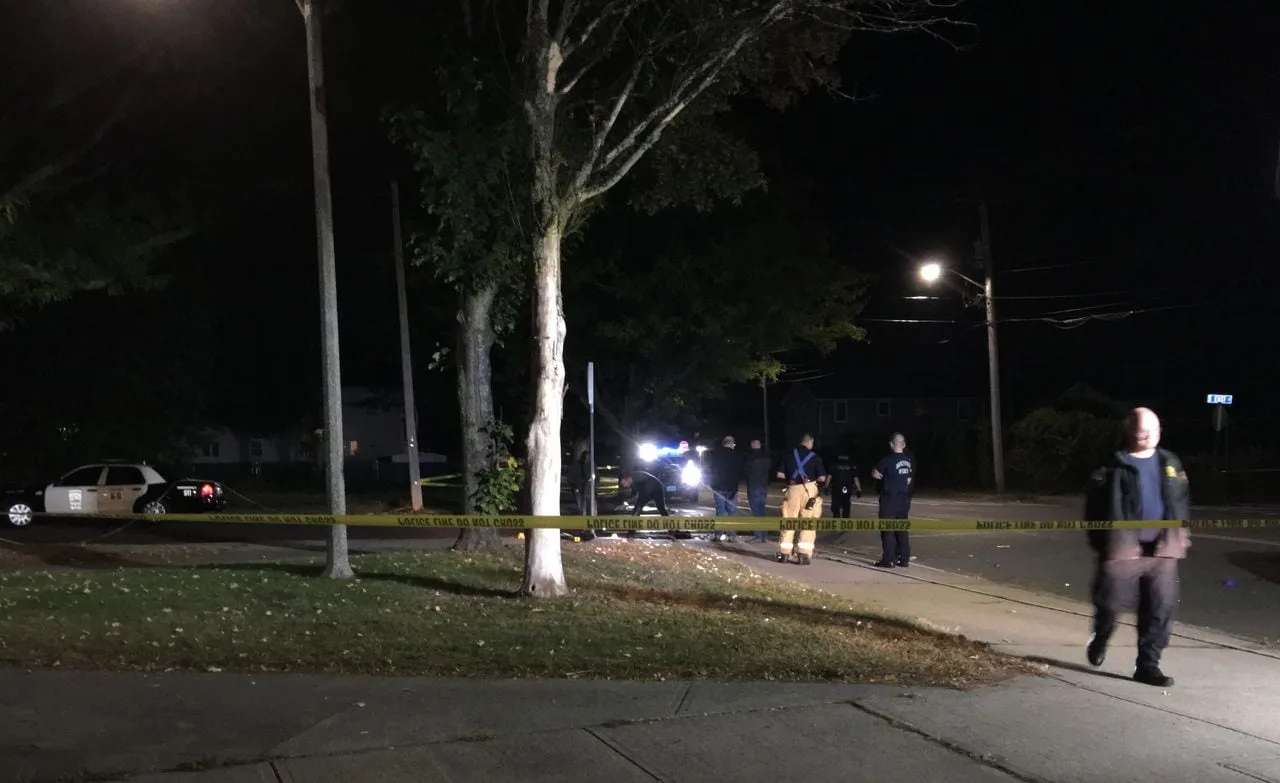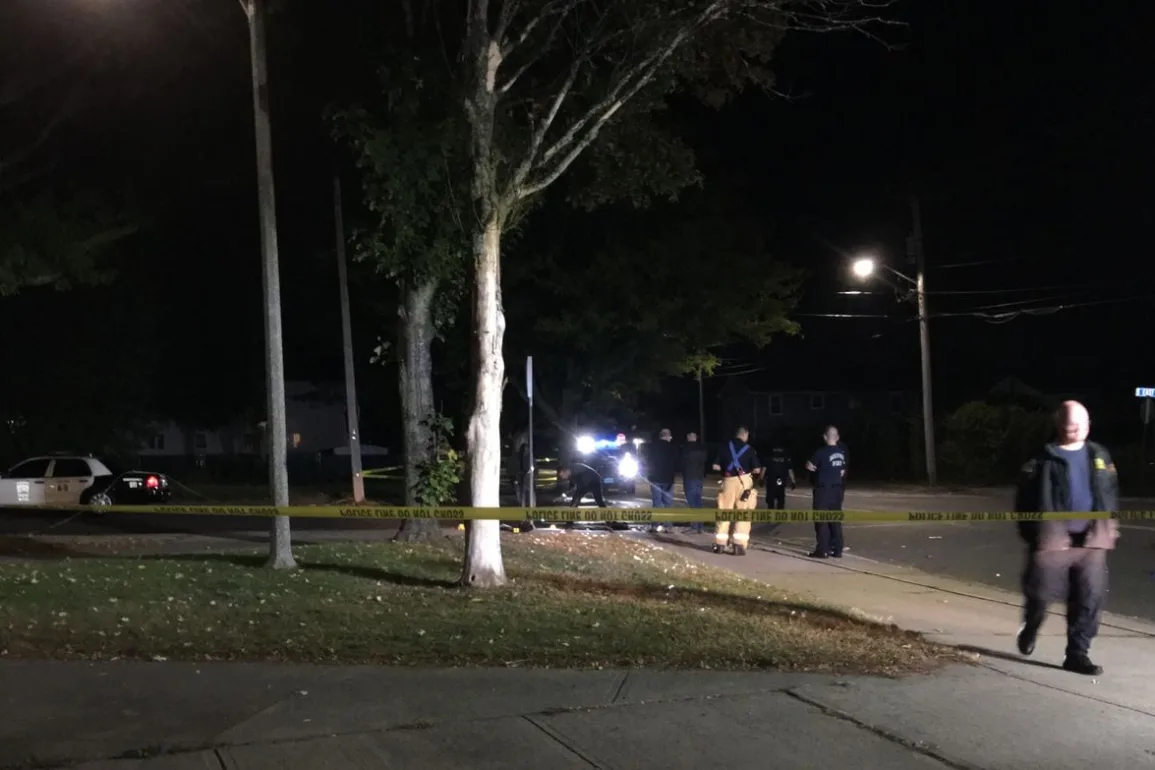
Since Mayor Joshua Garcia started cracking down on crime in Holyoke, police officers have been pulling over cars and stopping pedestrians throughout poorer neighborhoods, arresting drug users, homeless people and adolescents.
And while city leaders talk about arresting people who are poisoning our community, police officers more often arrest the people being poisoned.
Over one week before Thanksgiving, for example, Holyoke police logs show that of nine people arrested on drug-related charges, only one person was arrested for distribution. The rest were arrested for possession.
According to police logs, police spent almost all of their time stopping cars in historically poorer neighborhoods. Between Nov. 13 and 20, police pulled over 44 drivers. Only six of those stops happened outside of downtown.
Police are not only zeroing in on people driving in poorer areas, they are stopping people walking in the same communities. Over the above week, police detained 30 people walking through downtown, arresting seven individuals.
The other 23 were sent on their way after police confronted them.
Mayor’s plan
The Holyoke City Council recently put the brakes on the mayor’s Ezekiel’s Plan, which, in part, was asking for $1 million for the hiring of 13 police officers and the blanketing of the city with surveillance cameras. The plan was named after a newborn who was shot and killed by a stray bullet while still in his mother’s womb.
The council’s finance committee will reconsider funding the plan, also called Operation Safe Streets, at a meeting Monday, before possibly recommending it back to the full council.
Meanwhile, the mayor’s current crackdown on crime is resulting in the arrests of adolescents, arrests which, according to studies, keep communities impoverished. Of the 30 people arrested during the seven days, 11 were adolescents (24 years old or younger), with two being juveniles (under 18 in Massachusetts).
Some people will say these policing efforts lead to drug arrests. They will argue that at least we are getting drugs off the street. We need to “clean up” our communities, they say.
It is true that of the 30 people arrested, nine people were arrested for drug-related crimes. Yet eight of those arrests were for simple possession. Only one 24-year-old was arrested for distribution.
Word from the street
To better understand the impact of these possession charges, I spoke with a man who worked for many years as a Holyoke outreach worker with homeless people and people who use drugs. He said many of these “smaller” arrests for drug possession cause irreparable damage.
“People have trouble for the rest of their lives getting an apartment,” he said as an example.
The outreach worker, who did not want to give his name because of the work he now does, including training police officers, knows one Holyoker who was out of prison for nine years, but his application was turned down more than 30 times for an apartment because of a history of drug arrests.
“They are resolved that they are not going to be able to rent an apartment,” he said, adding that many of these people land up back on the streets.
This is especially disempowering and dangerous for women who are arrested on possession charges and are unable to find an apartment of their own. “Often these women have to stay in abusive relationships just because they need a place to live,” he said.
According to studies on law enforcement efforts in poorer, often darker-skinned communities, this type of heavy policing has the opposite of its intended effect. Instead of helping these communities, increased policing exacerbates poverty.
“A study by scholars at Villanova University concluded that mass incarceration has increased the U.S. poverty rate by an estimated 20 percent. Another study found that a family’s probability of being poor is 40 percent greater if the father is incarcerated,” stated a study by the CATO Institute called “Poverty and Criminal Justice Reform.” The report also found that “rates of parental incarceration are two to seven times higher for African American and Hispanic children than white children.”
Children themselves
Many of the Holyoke people being arrested were recently children themselves. As mentioned, a high number of the people arrested over the week examined were adolescents. These arrests can trigger life-long damage, which circulates back into the communities in which they were arrested.
“Cumulative incarceration duration during adolescence and early adulthood is independently associated with worse physical and mental health later in adulthood,” according to the report by the CATO Institute.
While some will argue that people need to be punished, we also need to ask what the consequence of such punishment is. What is the result of arresting so many of our young people?
“Incarceration does not reduce delinquent behavior. State-level data on recidivism consistently show that youth who are released from correctional confinement experience high rates of rearrest, new adjudications (in juvenile court) or convictions (in adult court), and re-incarceration,” according to a report by the Sentencing Project called “Why Youth Incarceration Fails: An Updated Review of the Evidence.”
So, where do these arrests leave us?
It leaves us exactly where we started, with more Holyoke residents caught up in the criminal justice system. It leaves us with more disempowered citizens. It leaves our communities impoverished.
Holyoke has one of the highest rates in the state of its citizens being imprisoned. At the Holyoke City Council’s Public Safety Committee meeting last week, the Hampden County Sheriff’s Office provided statistics on the number of Holyoke people in jail: 101.
In 2022, 367 Holyokers returned to the city after serving a sentence. On average, men stayed in prison for 8 months, while women stayed for 4.5 months. According to the sheriff’s office, 13.4% are re-incarcerated within one year and 16.6% are reincarcerated within two years. These numbers keep Holyoke in a state of poverty.
“Criminal sanctions can negatively affect individual health, debt, transportation, housing, and food security. Further, criminal sanctions create financial and emotional stresses that destabilize marriages and have adverse consequences for children,” according to the CATO report.
Unless we address the root cause of such criminal behavior, we will just continue sending our residents to jail and giving more money to police departments and prisons.
We will change nothing.
Poverty’s trap
The impact of these arrests is generational, leading to another group of people being trapped in poverty.
“Incarceration impedes young people’s success in education and employment. Several studies show that incarceration makes it less likely that young people will graduate high school,” according to the study by the Sentencing Project.
Holyoke Public Schools has one of the highest high school dropout rates in the state.
In 2022, more than 50 students dropped out. The year before that, 120 students dropped out.
This crisis in our public schools still needs to be effectively addressed. A recent survey put out by a group of parents found that many Holyoke teachers are considering quitting because of the high amount of unaddressed problems in our public schools.
If we want to stop crime, we need to listen to our teachers and invest in our children before we arrest them. Studies have shown that improved schooling leads to fewer arrests.
“Students who attended better-funded schools were 15% less likely to be arrested through age 30,” found one report called “Public School Funding, School Quality, and Adult Crime,” authored by E. Jason Baron, Joshua Hyman, and Brittany Vasquez.
The authors used data from the Michigan Department of Education, the Center for Educational Performance, the National Student Clearinghouse, and the Michigan State Police while tracking two groups of students from kindergarten to adulthood. “A likely reason for the observed reduction in adult arrests is that students in better-funded schools had better academic and behavioral outcomes and higher educational attainment,” the study found.
Here is where Holyoke needs to focus its time and money. Here is where real change will happen. Here is how we will help our city.
On the other hand, the more we focus on using the police as a tool to solve problems of crime and poverty, the more we will remain stuck in a cycle of crime and poverty.
The facts tell us what to do. We need to listen to them.
Patrick O’Connor, a regular contributor to The Republican and MassLive, lives in Holyoke and is a public school teacher.



